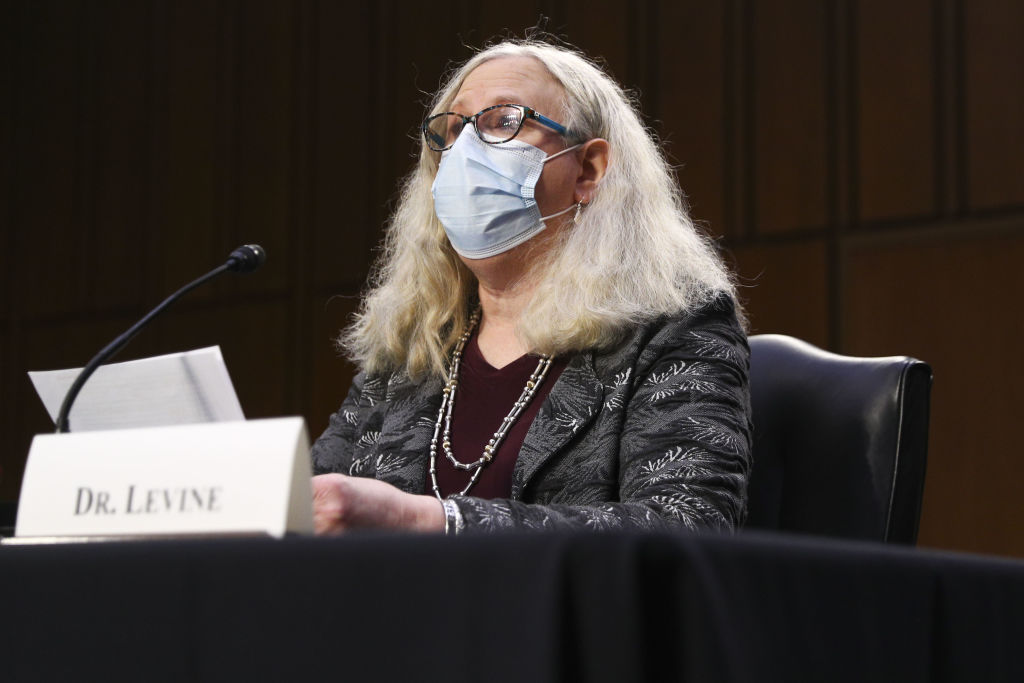
The U.S. Department of Health and Human Services (HHS) is calling for a new Office of Long COVID Research and Practice to direct an “all-hands-on-deck, whole-of-government approach” to researching Long COVID—a condition marked by long-term symptoms following a case of COVID-19—and supporting those who have it, according to a Long COVID research action plan released Aug. 3 by the Biden Administration.
“Long after the more immediate effects of the pandemic, the long-term impacts on the health of the nation will continue for years to come,” the report reads.
The report does not formally establish an Office of Long COVID Research and Practice, which “will need resources and staffing.” Rather, it recommends the formation of such an office as part of a broad plan to better understand and respond to Long COVID.
A report accompanying the research plan lays out federal resources currently available to people who have Long COVID—including financial, employment, and caregiving support—as well as guidance for health care professionals caring for Long COVID patients. The reports were commissioned in April by President Joe Biden.
More from TIME
One in five U.S. adults with a known prior case of COVID-19 currently has symptoms of Long COVID, according to recent data from the National Center for Health Statistics. These symptoms can include fatigue, cognitive dysfunction, chronic pain, neurologic issues, organ damage, and many others. For some people, they are disabling. According to one recent estimate, 4 million people in the U.S. are currently out of work because of Long COVID.
Read More: You Could Have Long COVID and Not Even Know It
The research action plan details the Biden Administration’s scientific priorities related to Long COVID, including better understanding the condition’s prevalence, risk factors, and potential treatments and preventive measures. It also calls for more research into whether the condition has various “subtypes” that may require different treatments.
While some people get better with time, there is no known cure for Long COVID. Some Long COVID treatment centers have popped up across the country, but they haven’t been enough to meet patient demand. The new report recommends establishing “Long COVID Centers of Excellence” that, along with primary care physicians, could provide care based on the latest research.
The research plan also calls for a better understanding of how Long COVID affects different groups of people, including children and adults who are economically disadvantaged, from minoritized backgrounds, or living in rural areas.
In late 2020, Congress gave the U.S. National Institutes of Health (NIH) more than $1 billion to study Long COVID. But the NIH’s hallmark effort, a multi-site study called RECOVER, has so far enrolled only about 7,000 of its desired 40,000 participants, drawing criticism from many Long COVID patients and advocates. Even NIH officials have acknowledged that it took too long to get the enrollment process off the ground within the slow-moving federal research system.
Additional funding will be necessary moving forward in order to make these efforts happen, according to the HHS report.
In a statement, HHS Assistant Secretary for Health Dr. Rachel Levine stresses that the reports are only the beginning of the administration’s Long COVID efforts. “These initial reports are an important step as HHS continues to accelerate research and programmatic support to address the consequences of the pandemic and work across sectors to ensure no one is left behind as we continue to build a healthier future,” she said.
More Must-Reads from TIME
- How Donald Trump Won
- The Best Inventions of 2024
- Why Sleep Is the Key to Living Longer
- Robert Zemeckis Just Wants to Move You
- How to Break 8 Toxic Communication Habits
- Nicola Coughlan Bet on Herself—And Won
- Why Vinegar Is So Good for You
- Meet TIME's Newest Class of Next Generation Leaders
Write to Jamie Ducharme at jamie.ducharme@time.com